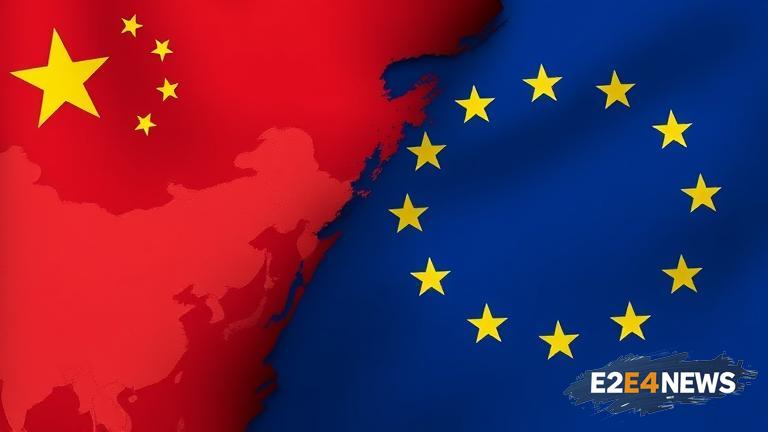The European Union is taking a significant step towards imposing sanctions on China, a move that is likely to escalate tensions between the two major world powers. The decision comes after months of growing concerns over China’s human rights record, particularly in the Xinjiang region, where millions of Uighur Muslims have been detained in internment camps. The EU has also been critical of China’s trade practices, including the forced transfer of technology and intellectual property theft. The proposed sanctions would target Chinese officials and entities responsible for the human rights abuses and trade malpractices. The EU’s move is seen as a significant shift in its approach towards China, which has traditionally been focused on engagement and cooperation. However, the rising tensions between the two powers have led to a reevaluation of the EU’s strategy. The sanctions are expected to include travel bans and asset freezes on Chinese officials, as well as restrictions on trade with entities involved in human rights abuses. The EU is also considering imposing tariffs on Chinese goods, which could have significant implications for global trade. China has responded to the EU’s move by warning of retaliation, including the imposition of its own sanctions on EU officials and entities. The escalating tensions between the EU and China have significant implications for global trade and security. The EU’s decision to impose sanctions on China is seen as a test of its commitment to human rights and the rule of law. The move is also likely to have significant implications for the EU’s relations with other major powers, including the United States. The US has been critical of China’s human rights record and trade practices, and has imposed its own sanctions on Chinese officials and entities. The EU’s decision to follow suit is seen as a significant escalation of the tensions between the West and China. The sanctions are expected to have significant economic implications, including the potential for trade wars and disruptions to global supply chains. The EU’s move is also likely to have significant implications for the global human rights landscape, as it sets a precedent for other countries to follow. The decision to impose sanctions on China is seen as a significant victory for human rights activists, who have been campaigning for years to hold China accountable for its human rights abuses. However, the move is also likely to have significant implications for the EU’s economic interests, as China is one of its largest trading partners. The EU will need to carefully balance its commitment to human rights with its economic interests, as it navigates the complex and evolving landscape of global trade and security. The EU’s decision to impose sanctions on China is a significant development in the ongoing saga of tensions between the two powers, and is likely to have far-reaching implications for global trade, security, and human rights. The move is seen as a significant test of the EU’s commitment to its values, including human rights and the rule of law. The EU’s ability to navigate the complex and evolving landscape of global trade and security will be closely watched in the coming months and years. The implications of the EU’s decision to impose sanctions on China will be felt for years to come, and will have significant implications for the global economy, security, and human rights landscape.





